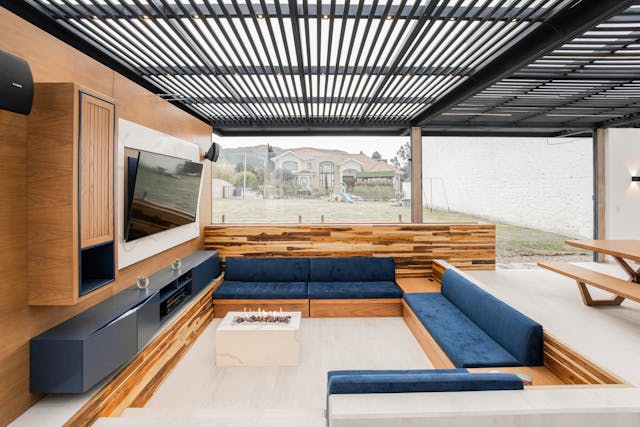
How to Protect Your Home From Natural Disasters
Natural disasters can strike at any time, leaving a trail of destruction in their wake.
From hurricanes and tornadoes to wildfires and earthquakes, these events can wreak havoc on homes and communities. They can cause significant damage and pose serious risks to safety and property.
It’s impossible to predict exactly when or where a natural disaster will occur. However, there are steps homeowners can take to protect their possessions and minimize the potential for harm. Read on to explore some essential strategies for safeguarding your home from various types of natural disasters.
Get Homeowners Insurance

Is the financial impact of natural disasters a concern of yours? It should be. Your first line of defense is homeowners insurance. Standard policies typically cover damage from events like fire and windstorms. However, they may not provide adequate protection against all types of natural disasters.
Everyone’s policy is different, so spend time reviewing yours to fully understand what it covers and what it doesn’t. Add additional coverage as needed or buy separate policies. If you live in California or other areas where earthquakes are common, you may want to invest in earthquake insurance. If you live in a coastal region, hurricane insurance may be necessary.
Being proactive about insurance coverage can help ensure that you’re prepared for the unexpected. It’ll help you recover more quickly in the aftermath of a natural disaster. Work with your insurance provider to assess your risks and tailor your coverage to meet your specific needs. Take into account your home’s location, construction materials, and susceptibility to various types of hazards.
Prepare Your Yard
You can reduce the risk of damage from natural disasters by focusing on your yard. Start by inspecting the trees and shrubs near your house. Trim them back, especially dead or overhanging branches. During hurricanes or severe storms, these branches can break off. They can become projectiles and cause damage to your home’s exterior, even breaking windows. By keeping trees well-maintained, you can minimize the likelihood of mishaps occurring.
While you’re in your yard, look over your outdoor furniture and garden decorations. You will need to secure these or move them before storms with high winds, as they can become airborne. Patio umbrellas, lawn chairs, and children’s toys can pose a threat if they are not properly anchored or stored. You can buy spiral rods to secure lawn furniture to a grassy area. Use posts and screws to fasten it to a patio, whether it is wood or concrete. In a pinch, you can use bungee cords to attach outdoor furniture to your house or garage.
In 2022, damage from wildfires totaled $8.9 billion. But if you live in a wildfire-prone area, your landscaping choices can help protect your home. Plant fire-retardant vegetation around your home. Plants you can use include aloe, sumac, ice plants, lavender, sage, and yucca. Make use of fire-resistant materials, such as stone and concrete for decorative elements. Maintain a defensible space around your home by keeping grass and shrubs trimmed and watered. Remove dead grass and leaves to prevent fires from catching easily in your yard.
Reinforce Windows and Doors

Windows and doors are vulnerable points in your home’s defense against natural disasters, particularly during hurricanes, tornadoes, or high-winds. To strengthen these areas, install storm shutters over your windows. You can also cut plywood to fit over the glass when severe weather is forecasted. This can help prevent debris from breaking windows and causing interior damage.
While more expensive than typical doors, impact-resistant doors are worth the price. They enhance the structural integrity of your home and reduce the risk of wind-driven rain or debris from entering. You should also reinforce your garage door. They are one of the weakest points on your property and can fail under pressure from high winds. In a pinch, temporary garage door braces can strengthen the door and prevent damage during storms.
To minimize damage from wildfires, hang heat-resistant curtains on your windows. They can help reflect some of the radiant heat generated by the wildfires and reduce the risk of glass breakage or cracking due to extreme temperatures. These curtains often have insulating properties as well, which can help keep the interior of the building cooler.
Anchor Heavy Furniture
If you live in an area prone to earthquakes, you’ll want to anchor heavy furniture inside your home. Earthquakes can be strong enough to knock over heavy furniture and appliances. Use wall anchors, straps, or brackets to secure bookcases, cabinets, and other tall furniture to the walls. For large appliances like refrigerators and water heaters, install earthquake straps or brackets. These should prevent them from tipping over or shifting during seismic activity.
Still, be aware of where you place heavy objects like vases and other decor. While it’s okay to display them, it’s best to store heavier objects on lower shelves. This reduces the risk of them falling and causing injury. You could also secure knick knacks with museum wax. Avoid placing heavy decorations above beds or seating areas where people may be present during an earthquake. You don’t want to inadvertently injure a family member or friend if something falls.
Prepare for Natural Disasters
Protecting your home from natural disasters requires foresight to prevent injuries or damage. You may be facing hurricanes, wildfires, earthquakes, or other natural hazards. Taking steps to safeguard your home and family can provide invaluable peace of mind and help you weather the storm. By prioritizing advanced preparation, you can minimize the impact of natural disasters and better protect the place you call home.
Trending
-
1 How IoT is Revolutionizing Sustainability: A Brighter Future Beckons
Susanna Koelblin -
2 How The Water Treatment And Desalination Will Change The Environment For The Better
Daniel Hall -
3 How Intermediate Bulk Containers Enhance Environmental Sustainability
Daniel Hall -
4 Hybrid Cars and Their Key Benefits
Susanna Koelblin -
5 UK Faces Wettest July in Recent Memory
Daniel Hall





Comments